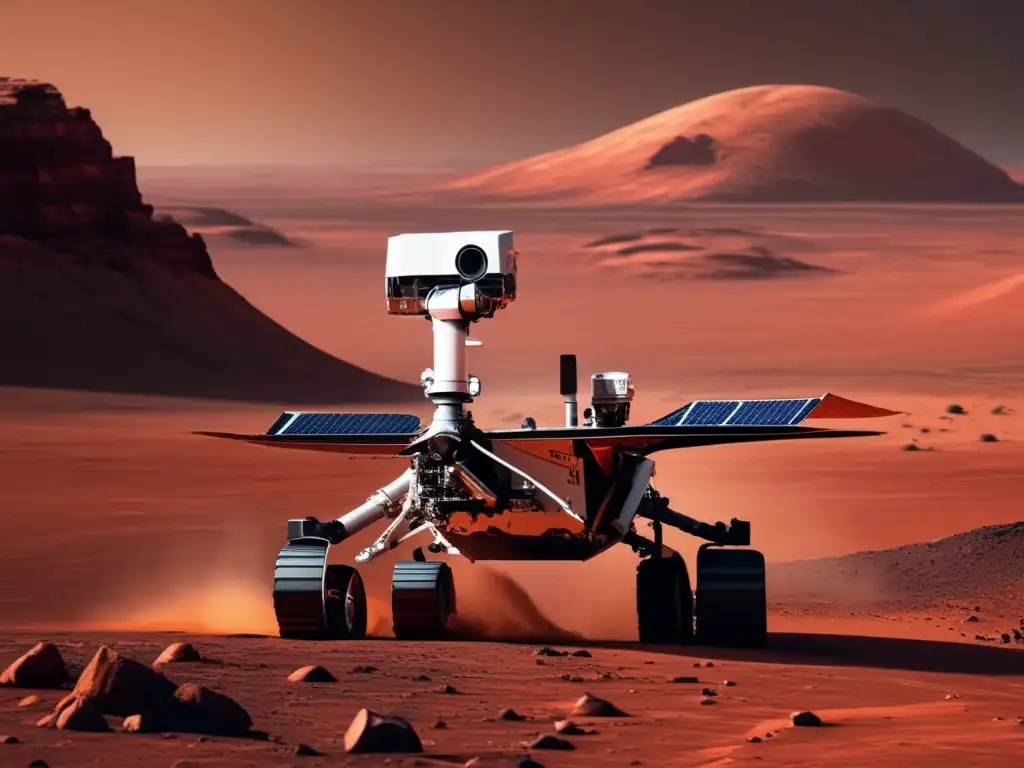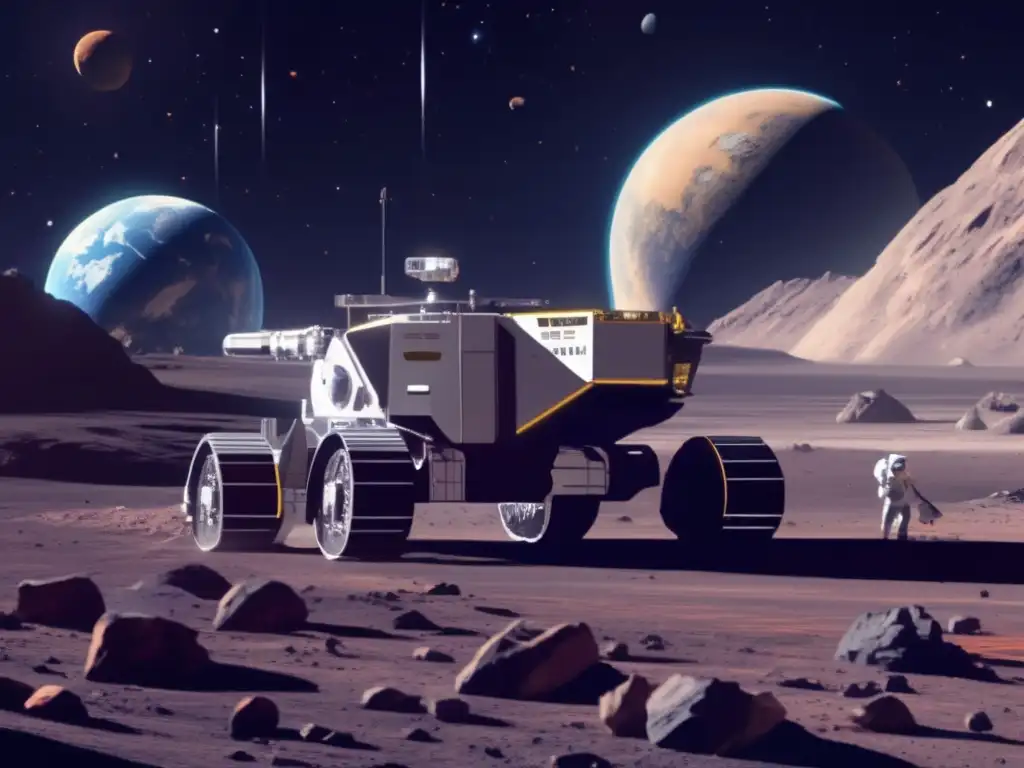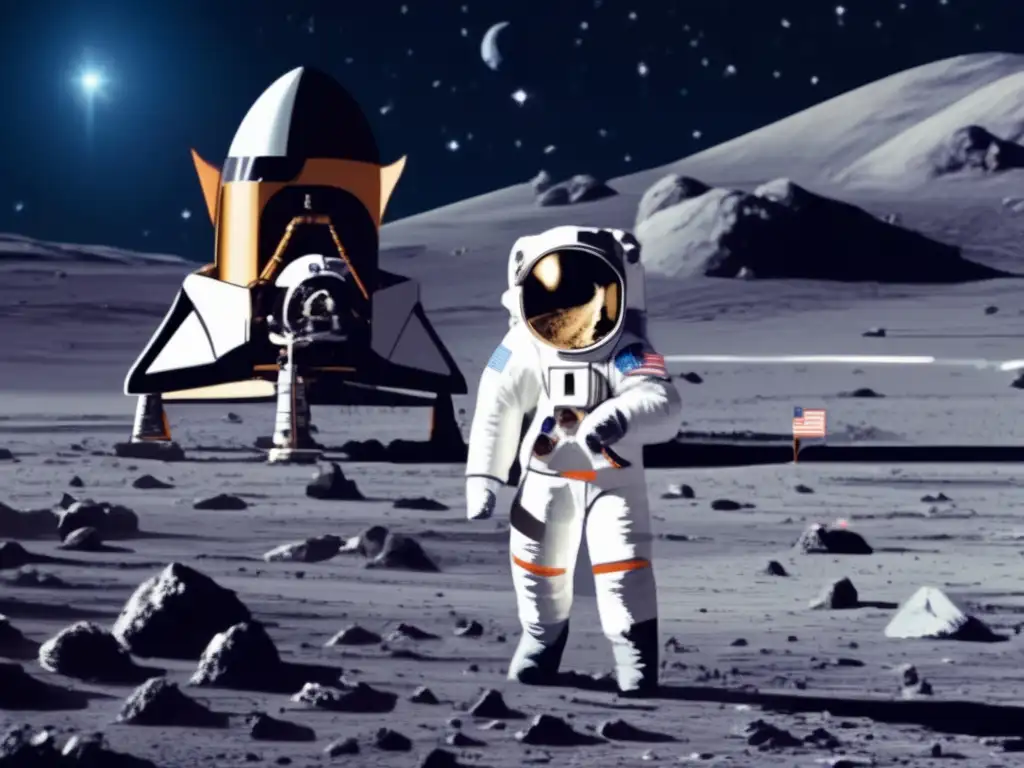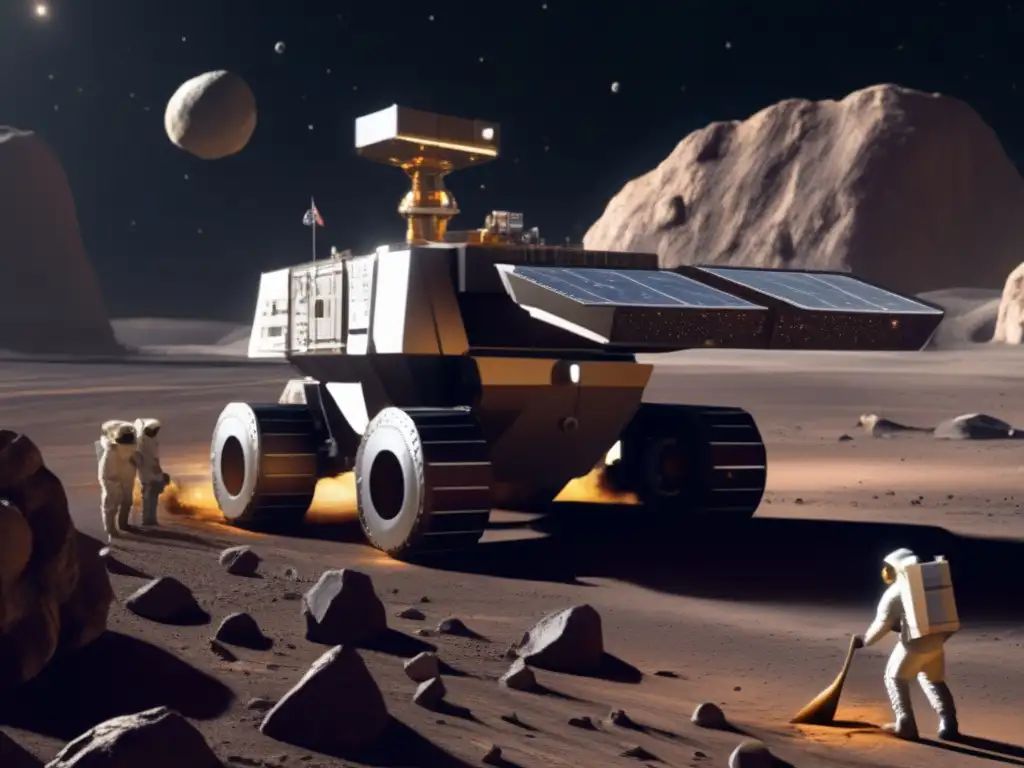Space Resources: The Legal Aspects Of Asteroid Mining

Introduction
Asteroid mining has emerged as one of the most promising ventures in space exploration. With the potential to extract valuable resources from these celestial bodies, companies and countries are increasingly turning their attention towards the economic opportunities that lie among the stars. However, as the race for space resources intensifies, it is crucial to understand the legal aspects surrounding asteroid mining to ensure responsible and sustainable practices.
The International Legal Framework

The Outer Space Treaty
The Outer Space Treaty, adopted by the United Nations in 1967, serves as the cornerstone of international space law. It establishes that outer space, including asteroids, is not subject to national appropriation. While this means that no country can claim ownership of an asteroid as a whole, it does not explicitly address the issue of resource exploitation.
The Moon Agreement
Unlike the Outer Space Treaty, the Moon Agreement, adopted in 1979, prohibits the commercial exploitation of celestial bodies, including asteroids, by any entity other than an international regime established by the treaty itself. However, the majority of spacefaring nations, including major space powers like the United States, Russia, and China, have not ratified this agreement, making it largely non-binding.
National Legislation
In the absence of a clear international consensus, several nations have started developing their own legislation to regulate asteroid mining. For example, the United States passed the Commercial Space Launch Competitiveness Act in 2015, granting American companies the right to own and sell resources obtained from celestial bodies, including asteroids. Luxembourg, on the other hand, has positioned itself as a leading proponent of space mining by passing the Luxembourg Space Act in 2017, providing a legal framework for private companies to exploit space resources.
The Role of International Organizations

The United Nations Office for Outer Space Affairs (UNOOSA)
UNOOSA plays a crucial role in facilitating the discussion and coordination of space-related activities. It promotes international cooperation and dialogue on matters related to asteroid mining and resource utilization. UNOOSA has organized workshops and conferences to foster collaboration between governments, industry stakeholders, and scientific communities, aiming to establish guidelines and best practices for asteroid mining.
The International Institute of Space Commerce (IISC)
The IISC is a think tank focused on promoting responsible space commercialization. It conducts research, provides policy recommendations, and facilitates discussions on the legal, economic, and ethical dimensions of space resource utilization. The IISC actively engages with governments, industry leaders, and academic institutions to shape the future of asteroid mining in a sustainable and equitable manner.
The Hague International Space Resources Governance Working Group
The Hague International Space Resources Governance Working Group is an initiative that brings together legal experts from around the world to discuss and develop norms, rules, and principles for the governance of space resources. Its goal is to create an international framework that ensures the effective and fair management of asteroid mining activities, taking into account environmental protection, benefit sharing, and non-interference with other space activities.
Frequently Asked Questions

-
Can a country claim ownership of an entire asteroid?
No, according to the Outer Space Treaty, outer space, including asteroids, cannot be subject to national appropriation.
-
Are there any international agreements that specifically regulate asteroid mining?
While the Moon Agreement prohibits commercial exploitation of celestial bodies, including asteroids, its limited ratification by spacefaring nations makes it non-binding. Currently, there is no comprehensive international agreement specifically regulating asteroid mining.
-
What are the key national legislations related to asteroid mining?
The United States has passed the Commercial Space Launch Competitiveness Act, granting American companies the right to own and sell resources obtained from celestial bodies. Luxembourg has also passed the Luxembourg Space Act, providing a legal framework for private companies to exploit space resources.
-
What efforts are being made to establish guidelines for responsible asteroid mining?
International organizations such as UNOOSA, IISC, and the Hague International Space Resources Governance Working Group are actively working towards establishing guidelines and frameworks for responsible and sustainable asteroid mining.
-
What role do private companies play in asteroid mining?
Private companies have been at the forefront of asteroid mining initiatives, with some actively developing technologies and strategies to extract and utilize space resources.
Conclusion
The legal aspects of asteroid mining are complex and evolving. While international agreements like the Outer Space Treaty provide a general framework, the absence of a comprehensive global consensus necessitates the development of national legislations and collaborative initiatives. It is crucial for stakeholders to engage in dialogue and work together to establish responsible and sustainable practices that allow for the exploration and utilization of space resources while ensuring equitable benefit sharing and environmental protection.
Readers are encouraged to share their thoughts in the comments section and to actively participate in the development of responsible space resource utilization. Subscribe to www.asteroidrealm.com for more updates, and help spread awareness by sharing this article on social networks. Thank you for your time and attention.
Additional Resources

For further information on asteroid mining and related legal aspects, consider exploring the following resources:
 From Science Fiction To Fact: The Evolution Of Asteroid Mining
From Science Fiction To Fact: The Evolution Of Asteroid Mining Overcoming Technical Challenges In Asteroid Mining
Overcoming Technical Challenges In Asteroid Mining The Promise And Perils Of Asteroid Mining
The Promise And Perils Of Asteroid MiningIf you want to discover more articles similar to Space Resources: The Legal Aspects Of Asteroid Mining, you can visit the Asteroid Mining and Resources category.
Leave a Reply

Articulos relacionados: